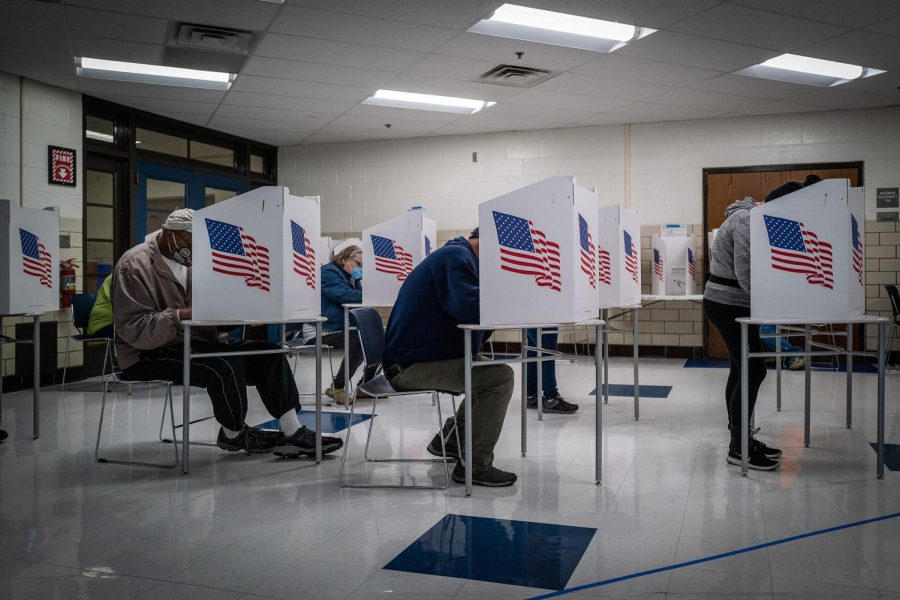Make Election Day ‘Democracy Day’ at Wake Forest
Making Election Day a university holiday could foster increased voting rates and community engagement
North Carolina’s 15 electoral votes could decide the election, writes Dillon Clark.
April 18, 2023
For the 50 years that 18-21 year olds have been able to vote, turnout has been low. This was interpreted as individual choice — that 18-24 year-olds simply didn’t care about politics — although over time, some also attributed it to the age group’s rejection of the American Democratic System (Gasp! The horror!). While there was some truth in these cynical explanations, there were also structural obstacles to voting for young people. This was especially true for students who were living anywhere other than home for college and had to cope with annoying — and frankly harmful — bureaucratic practices.
Despite these barriers, young people showed up in the 2020 Presidential Election. Fifty-seven percent of citizens ages 18-34 voted (an eight percent increase from 2016), heavily contributing to the record-breaking number of 159.8 million votes cast overall. This high voter turnout from young people is due, in no small part, to the hard work of voting rights advocates who have fought against the aforementioned discrimination in voting access by race, age and gender. Their advocacy has engaged our generation in the democratic process. Young people are reporting higher levels of enthusiasm about voting, in both presidential and midterm elections, than other generations did when they were our age.
All of this goes to show that our generation has proved, both in words and action, that voter advocacy is something important to us. Looking a little closer to home, Wake Forest students have corroborated this generational belief.
A 2020 report done by the Institute for Democracy and Higher Education and Tufts University showed that Wake Forest’s student turnout in the 2020 election was 78.2%, which is higher than the national average of 66%. This can largely be attributed to campus-wide initiatives like Deacs Decide — that fought for an early-voting polling site at First Assembly church near the freshman and sophomore parking lots — and ongoing campus partnerships with nonprofits like You Can Vote. Clearly, voting is something that matters to our students. This leads to the question: what more can Wake Forest do to support this movement?
One solid step would be to implement a “Democracy Day.” Democracy Day would be a university-wide Election Day holiday on a Friday during the early voting period. This holiday would give students a day without classes to go vote, freeing up their otherwise busy schedules. There would also be programming on Wake Forest’s campus to increase voter engagement and mobilization. Democracy Day has been shown to dramatically raise voting turnout on that day, as illustrated below from research from the North Carolina Young People’s Alliance.
I know what you’re thinking: if Wake Forest’s voting average is already above the national average, why do we need Democracy Day?
For starters, it is intended to make it easier for our students to keep doing what they are doing. There is always room to grow, and data shows that Democracy Day has increased student voting rates by 12%. Just as important, the programming in place of classes has the potential to change Wake Forest’s relationship with the larger Winston-Salem community.
For example, Wake Forest could bring local politicians onto campus to engage students in Winston-Salem politics — which, unfortunately but understandably, is often overlooked, since many students will only live in Winston-Salem for four years. This would strengthen students’ ability to identify with and make connections with the larger Winston-Salem community in the true spirit of Pro Humanitate.
So if you are a Wake Forest student, faculty or staff member and are interested in the idea of Democracy Day, click HERE to sign the petition or look for the purple flyers posted around campus. Just like with elections, students have more power than they realize in their universities. Let’s show the administration this is something the student body wants.














